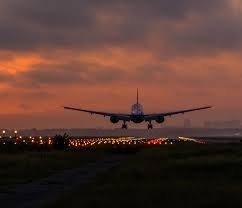New Delhi: Aviation watchdog DGCA has undertaken a review of its existing requirements and safety measures in place for runway safety and prevention of runway incursions, an official said on Monday.
This comes after the Japan Airlines (JAL) aircraft collided with the Coast Guard plane on Runway C while landing on January 2, with both aircraft catching fire. All 379 people aboard the JAL flight escaped before it was engulfed in flames, but five of the six crew on the Coast Guard plane died while the surviving pilot sustained serious injuries.
The Coast Guard plane, which belonged to the Haneda Airport base, was taxiing on the runway to transport relief goods for quake-hit areas after a series of temblors of up to 7.6 magnitude struck central Japan on January 1.
“Consequently, DGCA has issued Air Safety Circular 2/2024 outlining Mitigation strategies for Runway Incursion Risk. This is based on the analysis of safety data and output of National Aviation Safety Plan India,” said the Director General of DGCA, Vikram Dev Dutt.
The Directorate General of Civil Aviation (DGCA) has directed to ensure comprehensive training for Pilots, Air Traffic Controllers, Aircraft Maintenance Engineers (Clear to Taxi), and Drivers operating inside the airport.
The circular further directed to ensure adherence to standard procedures by all involved personnel/ stakeholders.
“Adoption of technological interventions to improve situational awareness, thereby assisting Air Traffic Control (ATC) and other stakeholders to identify the traffic within the manoeuvering area,” the circular stated.
The DGCA said that ATC should ensure that stop bars are switched on to signal a stop and switched off to indicate traffic may proceed.
“In no case, aircraft or vehicles be instructed to cross illuminated red stop bars. Aerodrome, ATC and airlines should implement contingency measures to cater to unserviceable stop bars,” said the circular.
The DGCA further also directed to recognise the influence of human factors on performance, which may contribute to runway incursions and establish a Runway Safety Team at all aerodromes and ensure their effective functioning.
“The rate of runway incursions is on a decreasing trend. However, by adhering to the actions specified in this circular and maintaining a proactive approach among all stakeholders, the risk of runway incursions may be reduced further,” the circular added.
–IANS


Comments are closed.